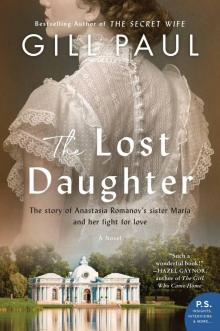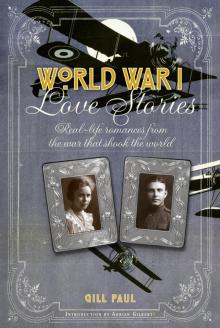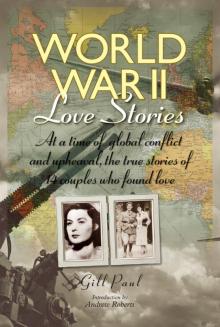The Lost Daughter Read online
Page 27
“Marry a Party boss?” the woman suggested, with a cynical look. “I notice they aren’t suffering any hardships.”
“Besides that?” Maria shuddered at the thought. She would never marry again. Peter had been the only man for her.
“I hear you get extra rations if you donate blood,” the woman said. “But be careful not to weaken yourself. Personally speaking, I need all the blood I’ve got.”
Maria didn’t have to be told twice. On her way to work, she stopped at the Hôtel de l’Europe on Nevsky Prospekt, which was being used as a military hospital. Her reward for a pint of blood was coupons for an extra two days’ family ration of bread, along with a bag of root vegetables. “Can I come back next week?” she asked, and was disappointed to be told that she could not donate again for another month. At least they ate well that night—a stew of potatoes, onions, carrot, and turnip, with fresh parsley sprinkled on top—and she made sure Mikhail got a bigger portion than his sisters. This deprivation seemed to be harder for men than for women, so she was relieved when Stepan told her that he was receiving army rations at his post on the antiaircraft battery.
* * *
When the snow came and the rivers iced over, the sense of claustrophobia intensified. There were bombs dropping most nights, gunfire by day, and a cold that felt crueler than in any winter Maria could remember. When Katya couldn’t find firewood for their burzhuika stove, Maria began to break up items of furniture and rip the baseboards from the walls. It was only December, with at least three more months of winter stretching in front of them. How would they survive? When would the city be relieved? She was beginning to think Stalin had abandoned them. Did he know of their plight? How could he let them starve?
On December 15, a Monday, Maria and Irina were walking to work through the snow. No one had cleared the pavement, so they walked in single file along a track worn by the footsteps of those who had gone before, dodging the rubble from bomb-damaged buildings. At the corner of Ulitsa Pestelya, there was a man lying on his side in the snow. Maria’s first thought was that he must have slipped, and she crouched to grasp his elbow and help him up.
“Sir? Are you all right?” she asked. It was then she saw that his eyes were wide open and staring out of a face tinged blue and sparkling with frost.
“He’s dead, Mom,” Irina said, a sob in her throat. “What should we do?”
Maria had seen dead people before—her family in the basement in Ekaterinburg; her baby Pavel lying in the bed beside her—and she knew straightaway that Irina was right. His body was here, but this man’s spirit was long gone. She closed his eyes then searched through his coat pockets until she found a ration card with an address on it. His name was Pavel, like her son, and his apartment block was just around the corner.
“You go ahead to the factory. Tell them I will be half an hour late,” she instructed Irina. “I’ll see if any family members are at home.”
When she rang the bell of the man’s apartment, she could hear a shuffling noise inside, but it was a long time before the door was opened by a gaunt woman who looked to be in her seventies.
“I’m so sorry,” Maria said, reaching out to touch her shoulder, “but I have bad news.”
The woman nodded when Maria told her and did not seem unduly surprised. She was thin as a pole herself and seemed very frail.
“Do you have children who can help you fetch the body and bury him?” Maria asked.
“My two sons are in the army,” the woman told her. There was a tear glinting in her eye, but it was as if she did not have the strength to cry.
“How about a neighbor? Or a friend?”
“Maybe the man at number twelve would help?” She didn’t sound too sure.
Maria went to knock on his door, and the man who answered agreed to come with her, although he did not seem too robust himself.
“I heard they are running out of coffins,” he told her. “Bodies are being taken to old churches for storage until a funeral can be arranged. Perhaps we should take Pavel to St. Panteleimon’s. That’s probably the nearest.”
He sighed when he saw the body still lying where Maria had found it, covered with a sprinkling of fresh snow. “Poor man. What an end,” he said. “A year ago, none of us would have left a dog lying in the snow like this, but now . . .” He left the sentence unfinished.
Between them they lifted the dead man. Maria held his feet while the neighbor clasped his chest, and they staggered slowly to the church, slithering on the icy pavement. In her head, Maria prayed for him, commending his soul to God.
“Will you look after the widow?” she asked before they parted.
“My wife and I will do what we can,” the neighbor said. “I wish you and your family strength.”
* * *
A month later, Maria looked back on the day she found Pavel lying in the snow and remembered how little they suspected then of what was to come. By mid-January 1942, it was common to find bodies in the street. Some folk sat down on a wall for a moment’s rest and never got up again; others lay in gutters, half buried in snow, their faces blackened and mouths gaping to show lost teeth. Every time she came across a body, Maria searched for a ration card so she could notify a relative, but sometimes it had already been stolen. Coats and shoes were often missing too. There was no longer any respect for the dead, and that felt unbearably sad.
By popular demand, a few Orthodox priests came out of hiding and began to conduct church services. Maria went to St. Vladimir’s Cathedral every Sunday and prayed for her own family, for her baby Pavel, for Peter—always for Peter—and for all the souls whose bodies she had found in the streets that week. She no longer visited the cemetery where Peter lay. As her strength ebbed, the walk was too much, and she could not bear to see the piles of corpses waiting for burial. The temperature had dropped to minus thirty and the earth was too hard to dig graves anymore.
All her children were thinner, but Mikhail’s pallor had improved since she started finding ways to slip him a little extra food.
“More supplies will be on the way soon,” her friend at the factory told her. “The Ice Road has opened at last.”
Maria wanted to jump for joy. For some weeks they had been waiting for the ice on Lake Ladoga to freeze to a depth of eight inches, because then it could take the weight of a truck driving over it and their city would once more be connected to the rest of the Soviet Union. She felt proud of her nation’s engineers. Germans would never manage such a feat. Only Russians with their long, cold winters knew how to use the elements to their advantage. She remembered the French Emperor Napoleon’s defeat in Russia in 1812 because his troops did not know how to survive the cold, and felt a glimmer of confidence that the war would soon be over.
“What food do you think they will bring first?” she asked, and they began to salivate as they talked of succulent beef cooked in a cream sauce, of rich cakes laced with honey, of potatoes baked on the fire and slathered in butter.
She went home that evening to a watery soup made of dandelions and nettles, and half a slice of crumbly, sour-tasting ration bread.
* * *
Toward the end of January, a neighbor’s boy caught whooping cough. The residents of the block sat in the air-raid shelter listening to his painful bouts of coughing followed by the distinctive whooping sound.
“Have you taken him to hospital?” Maria asked his mother. “That sounds nasty.”
“They say most children recover in time,” she replied, fear in her eyes.
Raisa leaned across to whisper to Maria. “I think we should tell her not to bring him to the shelter anymore in case he infects the rest of us.”
Maria ignored her, but huddled her children close. When they got back upstairs, she gave them a double dose of vitamin powder, just in case.
Over the next three weeks, every time she walked past her neighbor’s door, she heard the boy coughing and wheezing, and she said a prayer for him and crossed herself. And then, one morning, the entire block
heard howls like those of a wolf echoing around the corridors and across the courtyard. Maria rushed out to the landing in time to hear the mother scream, “God has taken my son. My only son.” She hurried down to embrace her, but the woman fought her off. No comfort could be given.
That evening, Maria was thinking of the boy as she wiped the supper dishes clean with a dampened cloth to save water. How lucky we have been, she thought. She felt guilty that she had five living children while her neighbor had lost her only son. Ingenuity in finding food was important in this siege, but survival was also a matter of luck. Maria had suffered incredibly bad luck in losing her parents and siblings, then poor little Pavel and Peter, but now she had another generation to comfort her, and hers were all good children.
She put the plates in her cupboard and wiped the stove clean, ready for the next person to use, before heading back to her apartment. As she stood outside the door, hand poised to turn the handle, she heard coughing and paused. It was Mikhail; she could tell. He coughed hard, as if there was something stuck in his throat, then went silent. Maria waited, scarcely daring to breathe. And then it came: an unmistakable whooping sound. It felt as though a shard of glass had pierced her heart.
Chapter 43
Leningrad, January 1942
MARIA WRAPPED MIKHAIL IN HIS THICK COAT AND warm boots, placed a fur hat on his head, and helped him through the dark streets to the Raukhfus children’s hospital, grateful that at least there was no bombing that night. Stepan said the Germans’ engines froze with the extreme cold so the aircraft couldn’t take off. Mikhail’s forehead was burning to the touch and the night air brought on fresh bouts of coughing, but Maria hoped that if she could get medicine straightaway, before he grew too weak, he would fare better than her neighbor’s son.
There was no heating in the hospital, and frost glazed the insides of windows. The wards were crammed with children as far as the eye could see. Most lay silent, staring into space, but some called out for help, stretching their arms toward her. She wondered if she had made a mistake in bringing Mikhail to this place where there were so many sicker than him, but they joined the line to see a doctor. Right in front of them stood a girl with lice crawling around her blond hair, and Maria leaned away, feeling her own head itch at the sight.
“A fit young man given adequate nourishment should easily recover from whooping cough,” the doctor advised after examining Mikhail. “Take him home, keep him warm, and offer as much food as you can.”
Maria was horrified. “Are there no medicines? I hoped you could give us something.”
The doctor spread his hands. “I have nothing that would help. Bed rest and good food are your best bet. Now, if you don’t mind . . .” He gestured to the line. Their turn was over.
Maria’s mind was racing on the walk home. She had to do more, but what? Suddenly it was as if she heard Peter’s voice in her head, reminding her that he used to use elecampane root to ease the little ones’ coughs. Where could she find some? She racked her brain and remembered seeing a small plant in the corner of the graveyard where he was buried. Would the root have survived beneath inches of snow?
Next morning, she rose at dawn and walked all the way to the cemetery. A couple of times she swayed, feeling light-headed, but she was driven by her determination to get back to her ailing son.
When she reached the corner where Peter’s grave lay, she stopped briefly to talk to him in her head. We are surviving, she told him, but Mikhail is ill. If you can hear, please tell me what to do.
A gravedigger’s spade lying abandoned on the ground nearby caught her eye. She picked it up and walked to the spot where she remembered seeing the wild elecampane. When she brushed the snow away, she saw that the plant had withered back from frost.
She lifted the spade and hit the hard-as-steel ground, vibrations rippling up her arm. “It’s not working, Peter,” she muttered out loud. She tried using the sharp corner of the spade, leaning her weight into it and seesawing back and forth. Gradually the earth began to chip away. She felt dizzy with the effort, but at last she broke the ground sufficiently to rip up the elecampane’s tuberous roots. She wrapped them in a sheet of paper and laid them in the top of her shopping bag, closing her eyes in gratitude. It felt like another gift from Peter, as if he was still trying to help.
On the way home, she began to feel very faint. She sat on a wall with her head between her knees, but the dizziness would not pass. Every time she tried to get up, the world spun. It started to rain and still she couldn’t get to her feet without feeling as though she would topple over.
“Can I help you, ma’am?” a voice said, and she looked up to see a young man in army uniform, cap on his head. “Where do you live?”
She told him, but added, “It’s quite far.”
“No problem,” he said, putting an arm around her shoulders and hoisting her to her feet. He was strong, like Peter; she could feel the muscles through his jacket sleeve. It took almost no effort for him to support her as they walked. Maria didn’t talk much, conserving her energy for the effort of putting one foot in front of the other, but the soldier chatted about a show he had seen the night before at the Musical Comedy Theatre.
“Can you believe they are still performing? The auditorium was almost full. I don’t think I’ve ever laughed so much,” he told her. “I’ve only got a week’s leave and it was too far to go home, but Leningraders have such incredible spirit that I’ve really enjoyed my stay.”
When they reached the street door, Maria fumbled for her keys. “Please,” she said. “Come upstairs and let me give you some bread for your trouble.”
“I wouldn’t dream of it,” he exclaimed. “I get army rations. Take care of yourself, ma’am.”
Back in the apartment, she chopped the elecampane root and cooked it in a little water. Peter used to mix it with honey, but all she could manage was a few grains of sugar to counter the bitter taste. Mikhail swallowed it then fell back on his pillows exhausted and slept. Maria wanted to say a prayer for the soldier who had helped her, but realized with shame that she hadn’t even asked his name.
* * *
Two days later Katya began coughing and whooping and Maria moved Irina and Yelena into her own bedroom to separate them from the invalids. She made yet another soup from dandelion leaves and split her own bread ration between her sick children so they got an extra slice each. She kept a pot of water boiling in the room where they slept, hoping the steam would ease the congestion in their lungs, and fed them elecampane root several times a day.
Each morning when she opened her eyes she prayed they would have turned the corner, but as she lay listening it wasn’t long before she heard the sound of convulsive coughing followed by a gasped whoop.
She took a week off work, and after her boss insisted she return, Irina stayed at home to look after her siblings. When Maria explained to her colleagues why she had been absent, one of them had a suggestion.
“The children’s homes on the other side of Lake Ladoga are well run now. It’s not like the early days of the war when everything was chaos. My children are in home number 44, and they write that while conditions are not luxurious, they at least get hot meals every day, and there’s a school where their education continues. Perhaps you should send your two over there to be nursed back to health?”
Maria yearned with every fiber of her body to keep the family together, but at the same time she knew she would never forgive herself if one or both died of the whooping cough when she’d had it in her power to save them. What would Peter do? If only she could ask him . . .
On her next afternoon off, she walked to Finland Station to ask about reserving a place on an Ice Road crossing, and was aghast at the confusion. Frantic crowds lined up outside evacuation offices, jostling for a slot, pulling their belongings on sleds behind them. Maria was handed a list of regulations: all passengers must have the necessary stamps and paperwork; only sixty pounds of luggage per person; you had to bring a bowl and spoon for the
kasha and soup that would be served, and enough of your own food to last a few days. Her eye traveled to the bottom of the page, where a warning notice read: Those with infectious diseases are strictly prohibited. Her spirits plummeted. That ruled them out. Mikhail and Katya could not stop coughing for long.
She sat on a low wall and buried her head in her hands. She felt weak with hunger and flattened by despair. Each day she worked as hard as she possibly could: when she was not at the factory transporting shell casings, she was lining up for bread, scavenging for the increasingly rare edible plants that grew in parks and open spaces, or at home nursing her children. There was no rest, no free time. She was doing her best but it seemed that wasn’t good enough.
A hand pressed her shoulder. “Maria, how are you?” a familiar voice said, and she looked up to see Yuri, the NKVD officer.
Tears filled her eyes and she looked away, annoyed that he’d caught her in a moment of weakness.
He sat on the wall beside her. “How are your children?”
She shook her head. “Two of them have whooping cough. I had hoped to get them across the Ice Road, to receive proper care, but it seems impossible.” She waved the leaflet in her hand.
“Perhaps I can help,” he said quietly, and she looked up.
“Why would you do that?” The words came out rudely, which was not what she’d intended; her wits did not seem as sharp these days.
“Because you’re a good woman. Because you help others despite your own misfortune.” His eyes were gentle and looked directly into hers.
Maria shivered and broke away from his gaze. “It says they cannot go on the ice transport if they have an infectious disease. How do I get around that?”
“What if I got them onto a truck ferrying wounded soldiers back from the front line? They would receive good care and the normal rules would not apply.” He squeezed her forearm. “I must cross the Ice Road myself tomorrow night and could keep an eye on them. When I return next weekend I will be able to reassure you they are safe.”

 The Collector's Daughter
The Collector's Daughter The Lost Daughter
The Lost Daughter Jackie and Maria
Jackie and Maria The Affair
The Affair Love...Maybe
Love...Maybe The Secret Wife
The Secret Wife No Place For a Lady
No Place For a Lady Another Woman’s Husband
Another Woman’s Husband World War I Love Stories
World War I Love Stories World War II Love Stories
World War II Love Stories